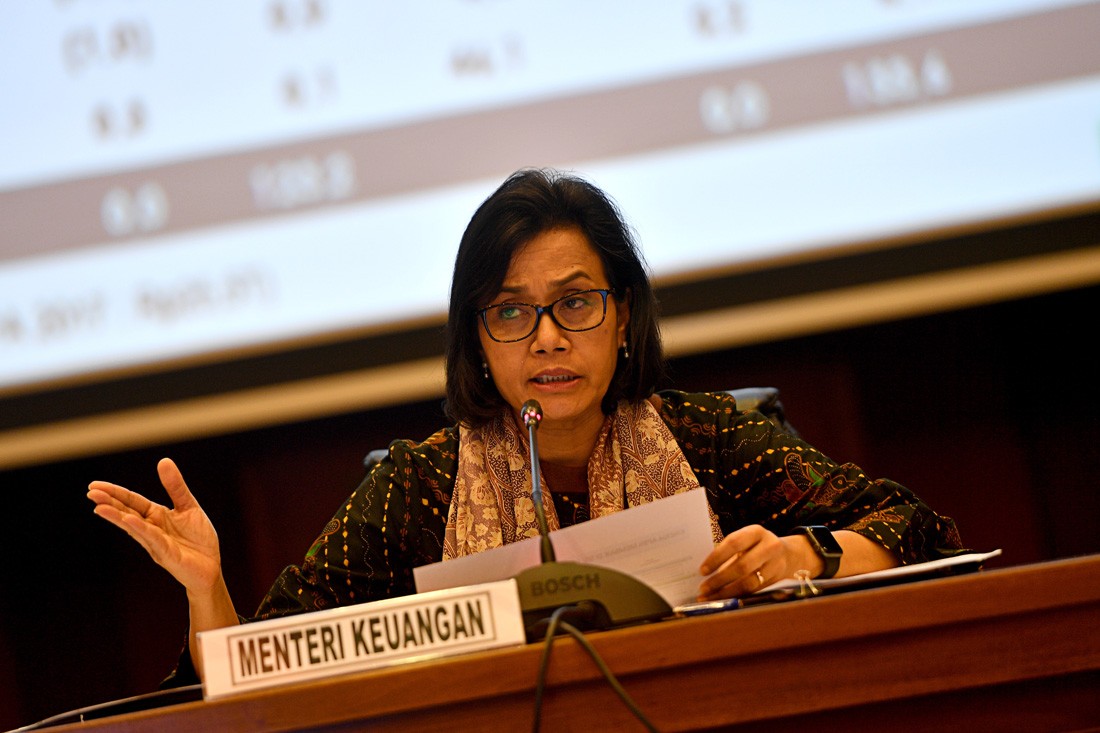Popular Reads
Top Results
Can't find what you're looking for?
View all search resultsPopular Reads
Top Results
Can't find what you're looking for?
View all search resultsWelcoming the revocation of e-commerce tax regulation
Change text size
Gift Premium Articles
to Anyone
T
he revocation of the Finance Ministry’s regulation on e-commerce tax should be welcomed as a wise decision. The life-changing potential of e-commerce to Indonesia cannot be underestimated. Indonesia has barely scratched the surface of the potential that digital inclusion will bring.
The e-commerce tax regulation that was scheduled to come into effect on April 1 could potentially become a roadblock for Indonesian e-commerce, sellers and platforms alike. Provisions included requiring online marketplace operators to report details of each seller’s turnover, mandating online sellers to register for a tax payer number (NPWP), and clarifying income tax rates to be paid by online sellers. Those making at least 4.8 billion rupiah (US$340,000) are required to charge customers’ VAT (value added tax), while online business classified as small and medium enterprises (SMEs) must pay 0.5 percent income tax on turnover or 25 percent corporate tax for larger enterprises.
Given that e-commerce is still in early stages of development, it is likely that burdensome regulations could halt the sector’s growth and dampen promising economic and social benefits.
While tax revenue collection is a national priority, applying an ecommerce tax may disincentivize businesses from coming online, as sellers are using e-commerce as a way to grow and reach new customers, rather than as a way to evade tax payment.
Many online sellers are coming from the informal economy prior to on-boarding e-commerce platforms. If anything, e-commerce allows businesses to grow and become more “formalized” over time, resulting in potential expansion of the tax base. A premature tax burden at a nascent stage may force sellers back to informal channels, thus inhibiting their growth and potentially reducing future tax revenue.
As expected, the plan to tax ecommerce transactions had met with strong local industry pushback, sounding alarm bells on the harsh impact premature regulations will have on the growth prospects of micro SMEs that are starting to come online, since such businesses will unlikely have the means and resources to comply with complicated regulations and administrative requirements.
As ASEAN’s largest economy, Indonesia has achieved a steady gross domestic product (GDP) growth of over 5 percent in recent years. To spur future growth, leadership have fast-tracked foreign direct investment (FDI) reforms and instituted measures to cut red-tape for potential investors, including liberalizing foreign investment rules and introducing a slew of tax incentives to encourage investment.
The nation’s ambitions also include becoming Southeast Asia’s largest digital economy by 2020. As Indonesia rapidly digitalizes, a significant contributor to future growth is e-commerce, driven by one of the highest social media usage rates globally, and the expected 50 million new internet users coming online between 2015 and 2020.
By 2022, Indonesia will have 44 million online-commerce shoppers, with an estimated worth of $55 billion to $65 billion, according to McKinsey. Significantly, 30 percent of online commerce will be new consumption that would not have existed without digital platforms. E-commerce will also create 26 million full-time-equivalent jobs by 2022, a staggering 20 percent of Indonesia’s total workforce.
This value must be kept topof-mind by the government as it formulates digital policy, including the new e-commerce tax regulations coming into force April 1. While short term revenue goals may be met, the long-term impacts of premature regulation could stop Indonesia’s e-commerce boom in its tracks.
E-commerce has enabled aspiring entrepreneurs to reach new customers and grow online by lowering barriers to entry and allowing easy scalability with minimal overhead costs.
A Bain & Company study shows 80 percent of ASEAN SMEs see e-commerce as an opportunity for their business; Indonesia is no different. McKinsey estimated there were 4.5 million active sellers on e-commerce platforms in 2017 — of these, 99 percent were microenterprises, while 50 percent were online-only businesses with no physical store presence. They predict that by 2022, these platforms will directly and indirectly support 26 million jobs, of which 17 million will be owners of online shops and their employees.
Consumers in Indonesia have enjoyed a better and more affordable quality of life due to e-commerce, especially in non-urban and rural areas, where consumers now have access to new products and services unavailable locally.
A McKinsey study shows that consumers outside of larger cities in Indonesia see greater cost savings from participating in e-commerce. For example, consumers in non-Java regions save 11 to 25 percent by shopping online compared to traditional offline retail. The same study also finds that at least 30 percent online commerce spending is new consumption, capturing previously untapped needs.
With entrepreneurship a massive opportunity for Indonesia and SMEs accounting for nearly 97 percent of domestic employment and 56 percent of total business investment, the cost of disrupting e-commerce adoption will be high, given predictions that Indonesia can unleash the next level of economic growth, up to $150 billion in annual economic impact by 2025, according to McKinsey.
Tax and regulations are important, but the right sequencing and transition are critical. For now, Indonesia’s focus should be to encourage SMEs to get online, helping grow the digital economy, instead of unilaterally applying digital tax.
The government should consider adopting international best practices and frameworks, such as the World Trade Organization E-Commerce Moratorium regarding zero customs duties on digital products, the Asia-Pacific Economic Cooperation Cross Border E-Commerce Facilitation Framework and the Organization for Economic Cooperation and Development Base Erosion Profit Sharing principles.
E-commerce will create 26 million full-time-equivalent jobs by 2022, a staggering 20 percent of Indonesia’s total workforce.
***
The writer is managing director of Asia Internet Coalition.











